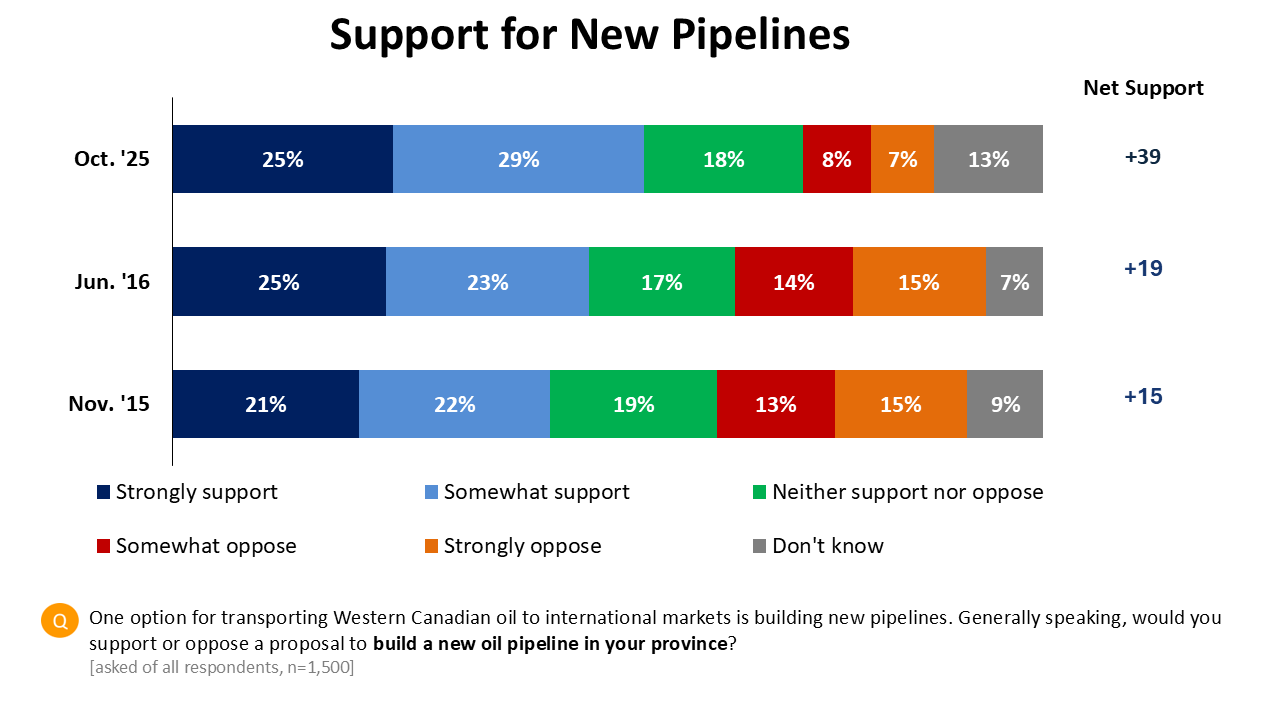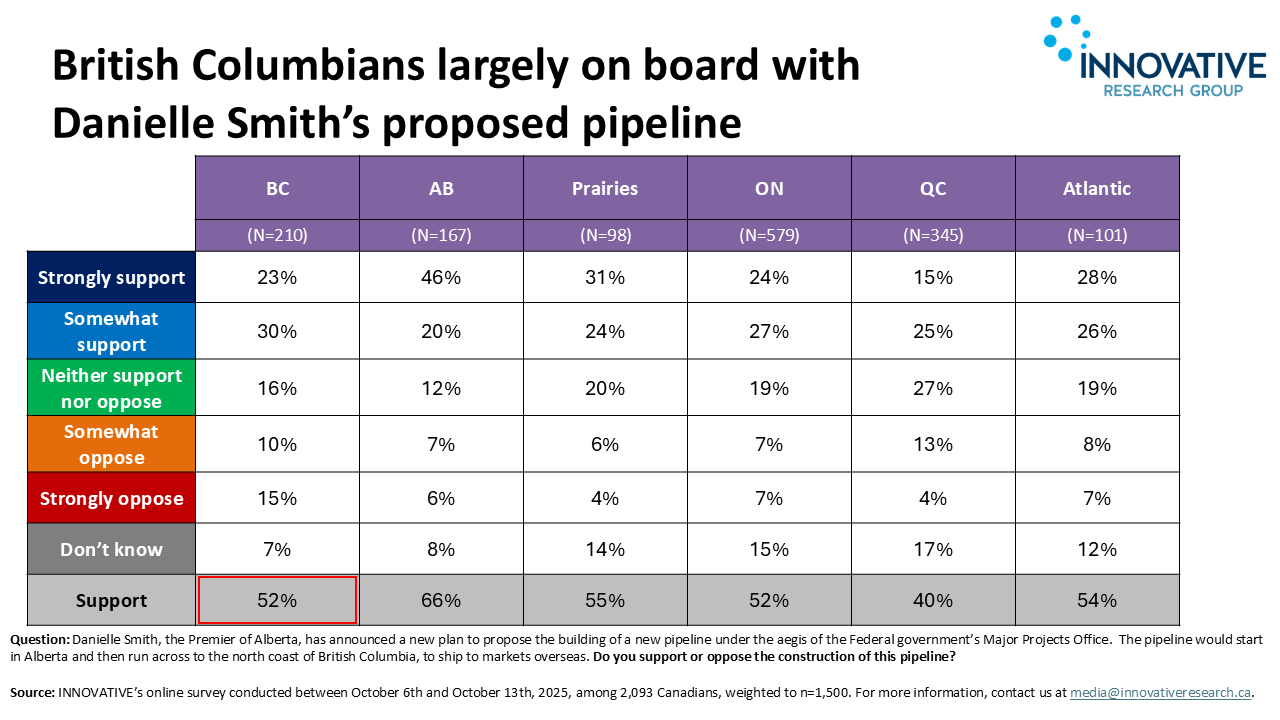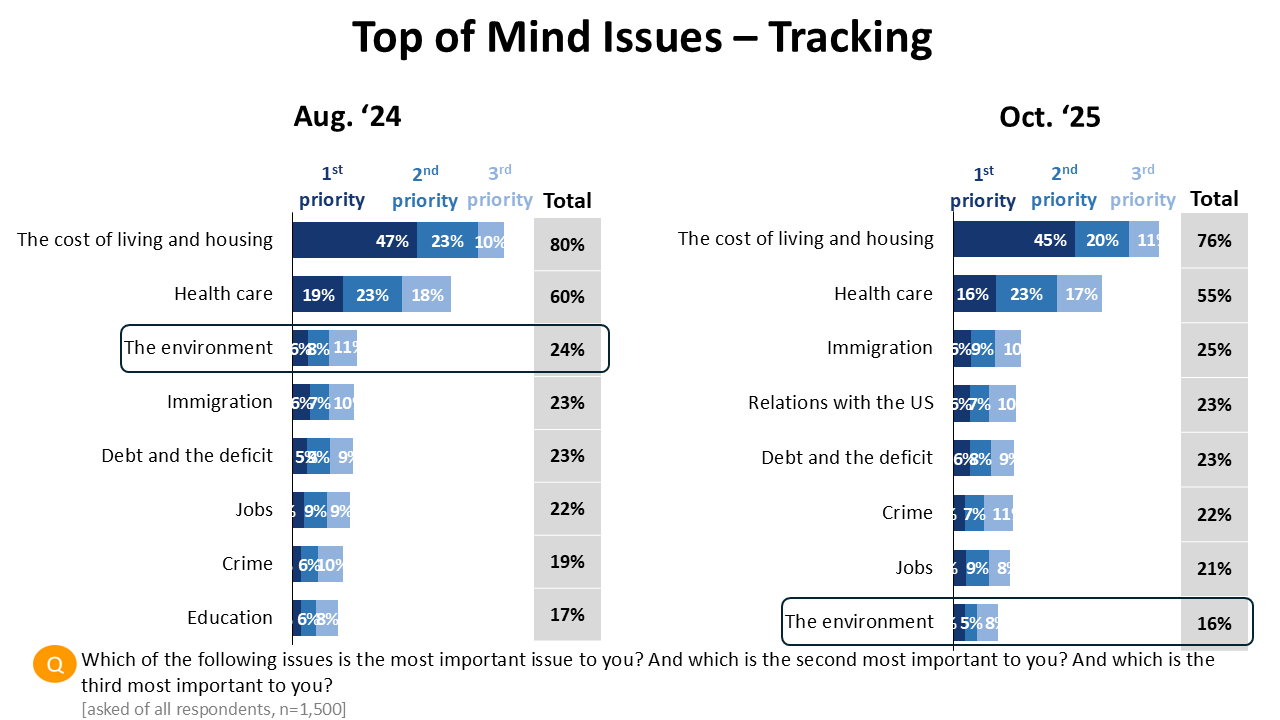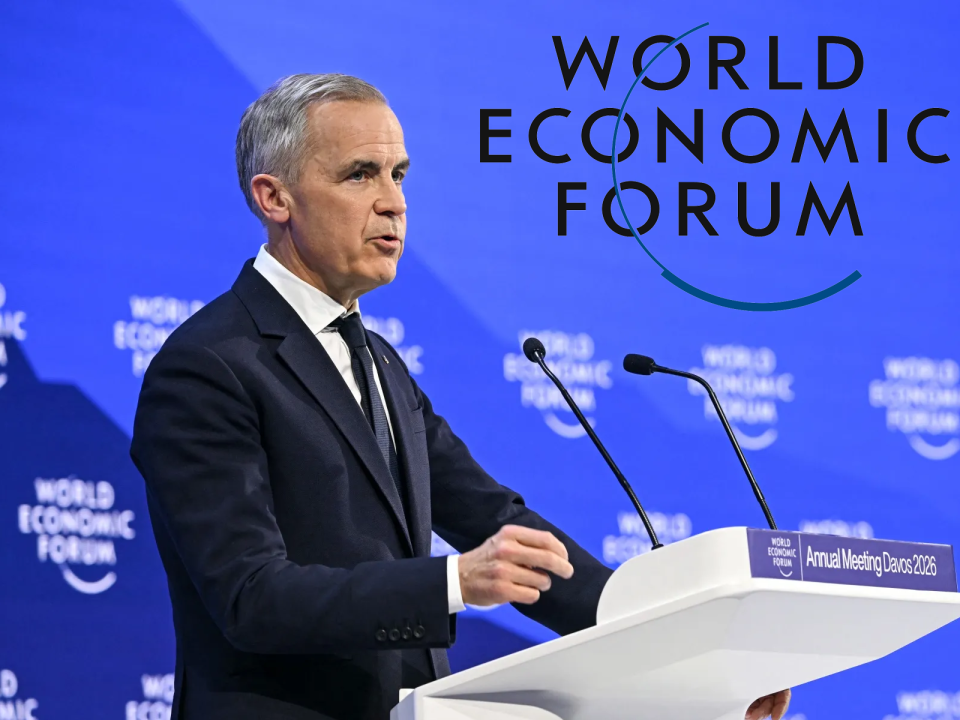
Opposition to new pipelines has plummeted since INNOVATIVE first explored the issue 10 years ago.
These results come from an online poll conducted between October 6th and October 13th, 2025, of 2,093 Canadian citizens, 18 years or older. This survey was sponsored by INNOVATIVE Research Group Inc. and weighted to n=1,500 based on age, gender, region, education, and self-reported past federal vote to ensure the overall sample reflects the population according to Census data.
Over half of Canadians (54%) support building new pipelines in their province. Not only is support up, opposition has dropped in half over the past decade. Strikingly, this represents an increase in net support of 20 points since 2016.

Unsurprisingly, support for building a new pipeline is highest in Alberta (71%). Still, support remains above 55% across all provinces except Quebec (39%), whether it is a general reference to transporting oil or a specific mention of building a pipeline in your province. Crucially, this includes British Columbia, where 55% of respondents support the construction of a new pipeline in their province.
Support varies significantly by age and political inclination, however. Support for building a new pipeline in their province is 60% among those 55+, but only 48% among those 18-34. Support clears 70% among those in our conservative value segments, but drops to 51% among Pay-as-you-go Moderates, 47% among Left Liberals, and bottoms out at 34% among the Core Left.
When we ask about Alberta Premier Danielle Smith’s proposal to build a new pipeline from Alberta to the north coast of BC we see 51% support nationally. Support for this proposal slightly drops across all provinces when compared to the generic statement, even in Alberta (by 5 points). In British Columbia the proposal sees 52% support – only a marginal change from the generalized question, despite the specific reference to the north coast. Even with the trade-offs inherent in a concrete proposal, and the complications introduced by a relatively polarizing figure like Smith as an advocate, British Columbians largely remained on board with the proposal.

Perhaps most politically salient is that we see framing pipelines as a matter of economic independence substantially increases agreement. Nearly 2-in-3 (64%) agree new pipelines will help reduce US dependency. This is again highest in Alberta (75%), but it also sees increased support in Quebec (from 39% to 56%).
Canadians’ concern with the environment in general is taking a more pragmatic turn. The environment, which ranked fourth among Canadians’ most important issues in August ’24, has fallen to eighth place in October ’25, far behind the cost of living, housing, and health care.

Canadians’ increasing focus on economic issues has generated significant movement on support for new pipeline construction in 2025. While the Core Left still sees a majority opposed to new pipeline construction, the movement in the Moderate and Left Liberal segments to an even split for/against is noteworthy. This gives the Prime Minister and several Premiers the space to support projects that would have been politically difficult even a year ago.


































